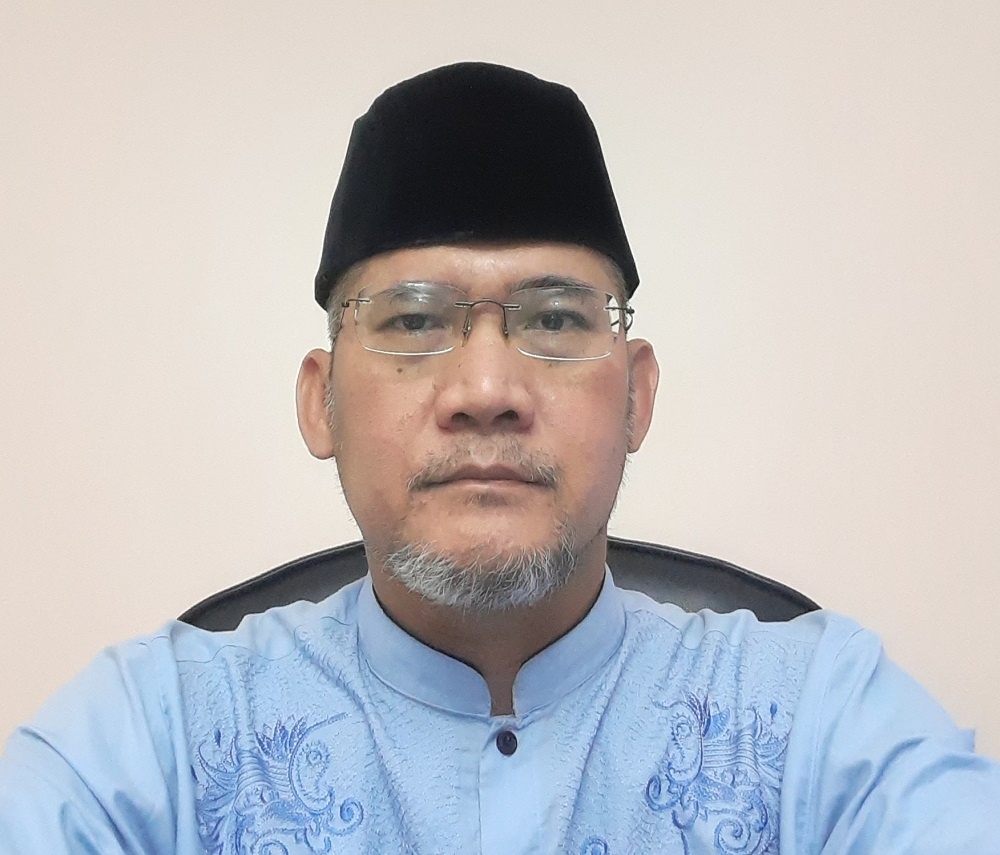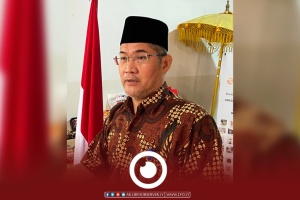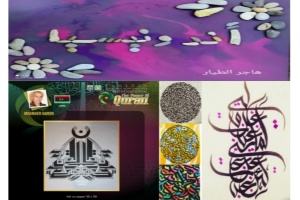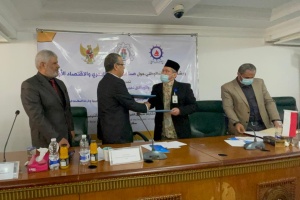By Mohammad Amar Ma’ruf, Charge d’affaires of the Embassy of the Republic of Indonesia in Tripoli - Libya
One approach to activate people’s economy; sharing Indonesia’s experience to mark its 75th Independence Day

What a challenge if the economic growth will be as normal as before due non natural disaster such as COVID 19. It may be achievable but it will be wiser if it will develop more sustainable. The world needs breakthrough to achieve it. The breakthrough that gives more prospective business environment to minimize the impact of the pandemic of COVID 19 and to be more friendly with environment.
Indonesia's experience on creating renewable energy from renewable sources and develop waste management have encouraged peoples to respect their environment (land, sea and mountain). Eventhough it still few, it deserves to be shared with.
The approach is believed offers solution for current development which still based on hybrid (renewable and unrenewable energies). Furthermore, it will attract more bottom up approach to develop grassroot economy without ignoring COVID 19 protocol that will sustain national economy and environment security.
During the Pandemic of COVID 19, many international banks especially conventional banks show contraction performances due to the economic performances around the world getting lower and lower. This year, many international financial analysts say that the performance of Banks will be impacted negatively due to the minus growth from -1 % until -3 % in the economic growth. It became worse since COVID 19 attacks, many people lost their job.
The economic downturn has become the big challenge for the Banks industries to support the purchasing power of the societies. Even though it has been supported by the monetary policies of Central Banks, the indicator of world economic still less to attract the circulation of credit from every banks.
What are the most crucial things during this situation that should be encouraged and focused on? One fundamental element is to help the grassroots that believe more majority and fragile. This element is vital and needs to be supported in order to be more productive and contribute more resilient society. Even though this majority is almost not familiar with banking practices, their productivity will give positive impact to the Banks operation.
Trying to answer the above situation, I am trying to invite all readers by seeing the life pattern of society toward their daily life. One of the issues that appear on this daily life is how we manage waste things that have been accompanying us since we had decided to buy and use something for our daily life, for example soft drinks, plastic bag, furniture, electrical appliances and the rest of domestic needs we can name it.
We acknowledge that most of products in our life are made of plastic, paper or metal. These substances are becoming more familiar since the industrial revolution is being introduced to us and then evolutionary shaped to be more wise products by diversifying it into more other functional products.
To support this objective, during this era we all know that most of the resources and producer countries in the field of oil sectors (unrenewable) built many petrochemical industries. This pattern has changed economical ways and mindset of society on how to optimize the industrialization process into variant of products and more diversified. This process contributes huge of world's money.
By referring to the report of United Nations Environment Assembly (UNEA-4) that nearly every good-producing sector, making an estimated $5.7 trillion contribution to world Gross Domestic Product (GDP) through direct, indirect and induced impacts, equivalent to seven percent of the world’s GDP, and supporting 120 million jobs worldwide.
In the other way it also create a challenge since the International Council of Chemical Associations (ICCA) during the UNEA-4 released an analysis of the chemical industry’s contributions to the global economy: The Global Chemical Industry: Catalyzing Growth and Addressing Our World’s Sustainability Challenges.
According to the report from Fossil Fuel Finance Report 2019 that describe of financial circulation from 33 Fossil Banks in the world succeed arising almost US $ 1.911 Trillion (accumulation from 2017 to 2019) for at least over 1800 companies active across the fossil life cycle. It describes that the active financial contribute to the economic growth.
The above development reflects how robust the world growth be supported by industrial chemical products that now being threated strongly by the COVID 19 pandemic. All Financial Analysist from the World Bank and IMF and others estimate the world growth will be having contraction average 0% to -3 % which means the world will be losing the same value to what the world has achieved in the 3 years before, in the term of Petrochemical industry only. So it will be a miracle if the Banks in the world will have performance as they have before.
The above contraction performance by the environmentalist tries to be reversed by adopting the pattern of sustainable financing program to get return benefit from the previous policies that optimizing the unrenewable resources along our daily life. This program has given promising and prospective businesses that can sustain the economic growth and reduce the emerging of new poverty communities in the world. It is very crucial situation that being faced by all over the world including the big economic countries.
This world now needs better economic system without ignoring the previous achievement and infrastructure. In line with this manner, the world actually has been reminded by the prediction of the Better Business Better World (BBBW) prepared and report by the Business & Sustainable Development Commission. They reported that by doing BBBW the Global Goals could open up an estimated US$12 trillion in market opportunities in four economic systems: food and agriculture, cities, energy and materials, and health and well-being. They represent around 60 percent of the real economy.
The above two pictures of economic and financial situation resulted by the achievement of chemical industrial-based projects and with the BBBW approach projects to the financial world situation give us good consideration to continue our economic agenda more wisely.
In tandem with the above purpose, as one of the global community with the bonus demography account as the fourth populous countries in the world, Indonesia has a blue print for doing sustainable goals. Through the years Indonesia struggles to reduce carbon level on the process of development by producing more alternate energy accompanying with the full participation of society in doing recycling programme.
In the level of grassroots, there have been a consciousness and consistent effort to manage waste problem. Even before COVID 19, it is quite worried that the waste problem is becoming Indonesian national concern. In Indonesia, according to the report of Environment and Forestry Ministry of the Republic of Indonesia, 36 % contributed from domestic waste. To reduce this burden, the Indonesian technical Ministry in collaboration with social organizations in all level have made breakthrough to empower any member of family to support voluntarily Waste Banks in their communities. This effort has developed quite optimism manner since the year of 2018-2020 almost 8.234 Waste Banks in 34 province and 219 cities are established.
The participation of any member of family by adopting 3 R approach (Reduce Reuse Recycling) in managing domestic waste has contributed new source of grassroots economy. It estimates that these activities have saved at least 1,7 % waste problems ( 1.4 tonnage per year) and absorb at least 163.128 man power, 49 % are household.
This bottom up approach from establishing Waste Bank has attracted big companies that get benefit also from this circle of sustainable manner toward their company productivity and cost of production. The Waste Banks activities create almost US $ 1 million per year. This will uplift purchasing power of the grassroots.
Meanwhile the management of Waste Banks give many interesting saving for participants by giving more valuable thing such as gold upon the appraisal of their effort in selecting the domestic waste to be deposited at Waste Bank before to be bought by companies that will produce the products and sell to market.
Other social benefit, these activities also create social consciousness or mental revolutionary to keep environment clean and avoid polluting manner to environment including sea and land environment. This manner is needed to create our comprehensive approach toward environment that nowadays being threatened by many non-natural disasters. It is frightening that in the world 80 % domestic waste go to the ocean and 20 % waste from sea activities. How can we live if the source of water being polluted meanwhile the viability of land water is getting decreased.
This activity also enriches social cohesiveness through empowering program in the grassroots. This spread of self sufficient to their basic needs and help domestic income. One example shown by the Waste Bank in West Jakarta. Its omzet achieves around US $ 4 million per year.
These two experiences give us prospective lifestyle that respect social value and environment, and minimize the spreading of degradation of quality of human life and its environment. It is hoped that it will give more economic and health security for peoples that may affected heavily due to COVID 19 and other non-natural and natural disasters.
For Indonesia, even this is still few but these experiences also open to be studied in order to be applied in any other national and society development.
May Allah Subhanahu wata'ala give us right path and healthy during this pandemic of COVID 19. Stay healthy and Keep your environment clean. Aaameen Ya Robbal Aaalameen.
Disclaimer: The views and opinions expressed in this article are those of the writer, and do not necessarily reflect those of the Libya Observer




